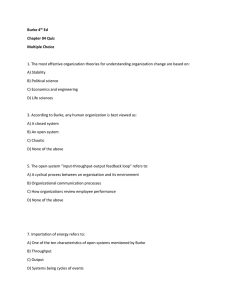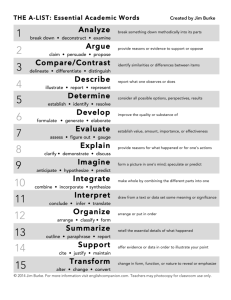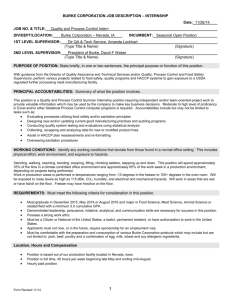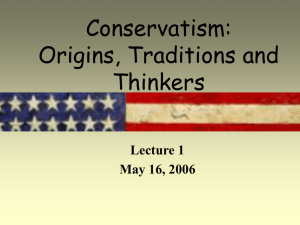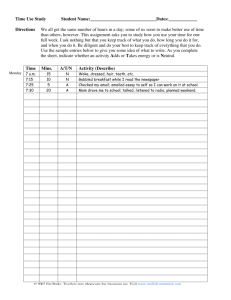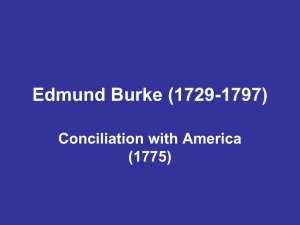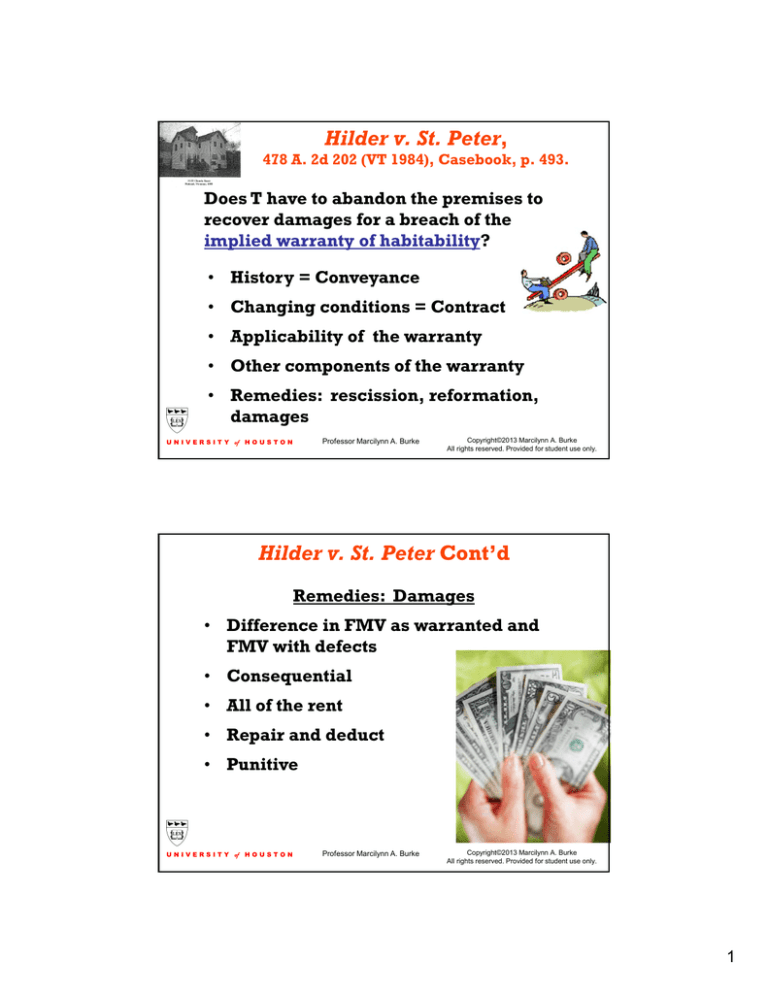
Hilder v. St. Peter,
478 A. 2d 202 (VT 1984), Casebook, p. 493.
Does T have to abandon the premises to
recover damages for a breach of the
implied warranty of habitability?
• History = Conveyance
• Changing conditions = Contract
• Applicability of the warranty
• Other components of the warranty
• Remedies: rescission, reformation,
damages
U N I V E R S I T Y of H O U S T O N
Professor Marcilynn A. Burke
Copyright©2013 Marcilynn A. Burke
All rights reserved. Provided for student use only.
Hilder v. St. Peter Cont’d
Remedies: Damages
• Difference in FMV as warranted and
FMV with defects
• Consequential
• All of the rent
• Repair and deduct
• Punitive
U N I V E R S I T Y of H O U S T O N
Professor Marcilynn A. Burke
Copyright©2013 Marcilynn A. Burke
All rights reserved. Provided for student use only.
1
Implied Warranties and Remedies
in Texas
• The implied warranty of habitability
applies to residential leases.
• The warranty of fitness or suitability of
purpose applies to commercial leases.
• Repair-and-deduct.
Tex. Prop. Code Ann. § 92.0561.
U N I V E R S I T Y of H O U S T O N
Professor Marcilynn A. Burke
Copyright©2013 Marcilynn A. Burke
All rights reserved. Provided for student use only.
Implied Warranties and Remedies
in Texas Cont’d
• Rent abatement. T’s judicial remedies
include an order reducing the T’s rent
in proportion to the reduced rental
value resulting from the condition.
The damages run from the time T
notifies L of the condition to the time it
is repaired or remedied.
Tex. Prop. Code Ann. § 92.0563.
U N I V E R S I T Y of H O U S T O N
Professor Marcilynn A. Burke
Copyright©2013 Marcilynn A. Burke
All rights reserved. Provided for student use only.
2
Retaliatory Eviction in Texas
•
Retaliation is prohibited and code
basically presumes that if within six
months of a tenant exercising her rights,
the landlord takes certain adverse action
such as eviction or raising the rent, for
example, that the landlord is retaliating.
Tex. Prop. Code Ann. § 92.331.
•
A landlord may rebut this presumption,
however, by demonstrating that it had a
legitimate, non-retaliatory reason for
taking the adverse action against the
tenant.
Tex. Prop. Code Ann. § 92.332.
U N I V E R S I T Y of H O U S T O N
Professor Marcilynn A. Burke
Copyright©2013 Marcilynn A. Burke
All rights reserved. Provided for student use only.
Land Use Controls
• Nuisance
• Servitudes
• Zoning
• Takings
• Eminent Domain
U N I V E R S I T Y of H O U S T O N
Professor Marcilynn A. Burke
Copyright©2013 Marcilynn A. Burke
All rights reserved. Provided for student use only.
3
Judicial Land Use Controls:
The Law of Nuisance
Torts + Property
• Remedies
• Damages
>
• Injunctions
• Balancing
U N I V E R S I T Y of H O U S T O N
temporary or
permanent
Professor Marcilynn A. Burke
Copyright©2013 Marcilynn A. Burke
All rights reserved. Provided for student use only.
Nuisance
Property
Tort
A substantial nontrespassory invasion
of use and enjoyment of land that is
caused by—
1. negligent, reckless, or
ultrahazardous activities
(unintentional) or
2. activities that are intentional and
unreasonable.
U N I V E R S I T Y of H O U S T O N
Professor Marcilynn A. Burke
Copyright©2013 Marcilynn A. Burke
All rights reserved. Provided for student use only.
4
Morgan v. High Penn Oil,
77 S.E. 2d 682 (N.C. 1953), Casebook p. 731.
Private Nuisance
• Sic utere tuo ut alienum non laedas
• Substantial non-trespassory invasion
of another’s interest in the private use
and enjoyment of land
U N I V E R S I T Y of H O U S T O N
Professor Marcilynn A. Burke
Copyright©2013 Marcilynn A. Burke
All rights reserved. Provided for student use only.
Morgan v. High Penn Oil Cont’d
Legal Basis for Liability
• If unintentional, is it—
• negligent, reckless or ultrahazardous?
• If intentional, is it—
• unreasonable under the circumstances?
U N I V E R S I T Y of H O U S T O N
Professor Marcilynn A. Burke
Copyright©2013 Marcilynn A. Burke
All rights reserved. Provided for student use only.
5
Morgan v. High Penn Oil Cont’d
What is Intentional?
• Acts for the purpose of causing it,
• Knows that it is resulting from his
conduct, or
• Knows that it is substantially likely to
result from his conduct.
U N I V E R S I T Y of H O U S T O N
Professor Marcilynn A. Burke
Copyright©2013 Marcilynn A. Burke
All rights reserved. Provided for student use only.
Morgan v. High Penn Oil Cont’d
What is Unreasonable?
• Consider level of interference. Does
interference cross some threshold?
• Restatement: balance the gravity of
harm against the utility of the actor’s
conduct.
U N I V E R S I T Y of H O U S T O N
Professor Marcilynn A. Burke
Copyright©2013 Marcilynn A. Burke
All rights reserved. Provided for student use only.
6
Morgan v. High Penn Oil Cont’d
Coase Questions
• Who should be allowed to harm
whom?
• Cheapest cost avoider?
• Cheapest way to avoid the problem?
• Who should pay for the avoidance or
abatement of the problem?
U N I V E R S I T Y of H O U S T O N
Professor Marcilynn A. Burke
Copyright©2013 Marcilynn A. Burke
All rights reserved. Provided for student use only.
Estancias Dallas Corp. v. Schultz,
500 S.W.2d 217 (Tex. 1973), Casebook, p. 739.
Remedies
• Balance the Equities
• Injury to defendant and public if
injunction granted (significant
injury to the public?)
• Injury to plaintiff if petition denied
• Evidence presented/trial tactics
U N I V E R S I T Y of H O U S T O N
Professor Marcilynn A. Burke
Copyright©2013 Marcilynn A. Burke
All rights reserved. Provided for student use only.
7
Estancias Dallas Corp. v. Schultz Cont’d
Remedies Cont’d
• Coase
• Effect of assignment of right
• Efficiency
• Fairness
• Bargaining: bilateral monopoly
U N I V E R S I T Y of H O U S T O N
Professor Marcilynn A. Burke
Copyright©2013 Marcilynn A. Burke
All rights reserved. Provided for student use only.
8

